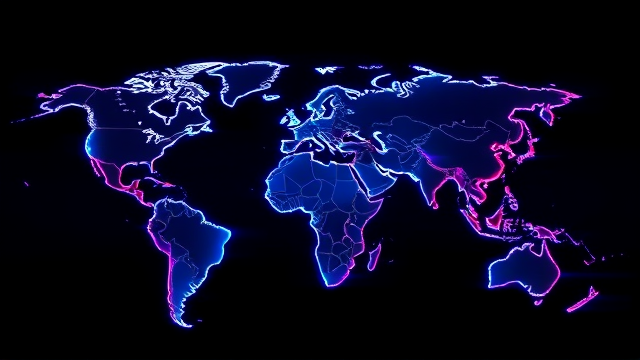Former BBC controller fears for World Service independence amid defence funding push
The integrity of the BBC World Service, a bastion of British influence and journalistic principle for nearly a century, now faces a profound and unsettling challenge from within its own corridors of power. Liliane Landor, its former controller, has sounded a clarion call against a dangerous proposition: the potential use of the nation's defence budget to bolster the service's finances.Her warning that such a move would risk subordinating its journalism to the government’s national security aims is not merely an administrative concern; it is a defence of the very soul of an institution whose credibility rests on its perceived independence. This development, revealed by The Guardian, signifies a critical juncture, reminiscent of historical tensions where state interests have sought to co-opt independent media voices, much like the propaganda apparatuses of a bygone era.Senior BBC figures, in their push for ministers to tap resources beyond the traditional purview of the Foreign Office, are navigating a treacherous path. While the financial pressures are undeniable—stemming from years of licence fee squeezes and a rapidly evolving global media landscape—the proposed remedy threatens to be a poison pill.The World Service’s unique power has always been its ability to speak with a voice that, while funded by the British state, is not seen as its mouthpiece; it is trusted in authoritarian states and fledgling democracies precisely because it is not Pravda or a ministry of information. To tether its operations to the Ministry of Defence is to fundamentally alter this contract with its global audience of hundreds of millions.One must consider the precedent: when journalistic output becomes implicitly linked to the strategic objectives of a nation's military and security establishment, the line between reporting and statecraft blurs irreparably. How would a report critical of a UK military ally, or an investigation into the fallout from a British arms sale, be perceived—or, more insidiously, internally managed—when the very budget that pays for that reporting is justified under a defence and security rubric? The spectre of self-censorship looms large.This is not merely a theoretical risk; it is a practical erosion of the firewall that has protected the service’s reputation since its founding in 1932. The BBC’s charter mandates impartiality and independence, principles that would be strained to breaking point under the weight of defence funding.Analysts and historians of soft power will note that the World Service’s greatest victories have been in its unflinching coverage, its commitment to truth even when that truth was inconvenient for His Majesty’s Government. To compromise that for short-term financial stability is to sell a priceless asset for a pittance, undermining the very global standing that the defence establishment ostensibly seeks to enhance. The conversation must now turn to alternative models and a reaffirmation of the core values that have made the World Service a global standard-bearer, lest we witness the quiet surrender of one of Britain's most potent instruments of influence to the very realpolitik it was designed to transcend.
Latest News
The political theater outside Westminster Magistrates' Court unfolded with predictable precision Monday morning, as far-right organizer Tommy Robinson—real
28 minutes ago0 comments
In a move that echoes the gravest moments of the Cold War, Britain’s domestic intelligence service, MI5, has issued a stark and unusually public warning to the
58 minutes ago0 comments
In a move that will undoubtedly be recorded by future historians as a pivotal moment in the long and tortured history of the Middle East, President Donald
1 hour ago1 comments
In a move that underscores the deeply personal and often cyclical nature of political influence, Labour has appointed Matthew Taylor, the architect of the
1 hour ago0 comments
In a high-stakes maneuver that recalibrates the geopolitical risk profile of the entire Levant, the long-anticipated prisoner and hostage exchange between
2 hours ago0 comments
The political battlefield erupted this weekend when George Finch, the 19-year-old Reform UK leader of Warwickshire county council and the UK's youngest council
2 hours ago1 comments
In a move that will undoubtedly be dissected by historians and political strategists for years to come, President Trump has formally signed a Gaza peace plan,
3 hours ago1 comments
In a move that will be scrutinized by historians for its geopolitical weight, the initial phase of a Gaza ceasefire deal was formally signed in Sharm
3 hours ago0 comments
It’s quiet here...Start the conversation by leaving the first comment.
